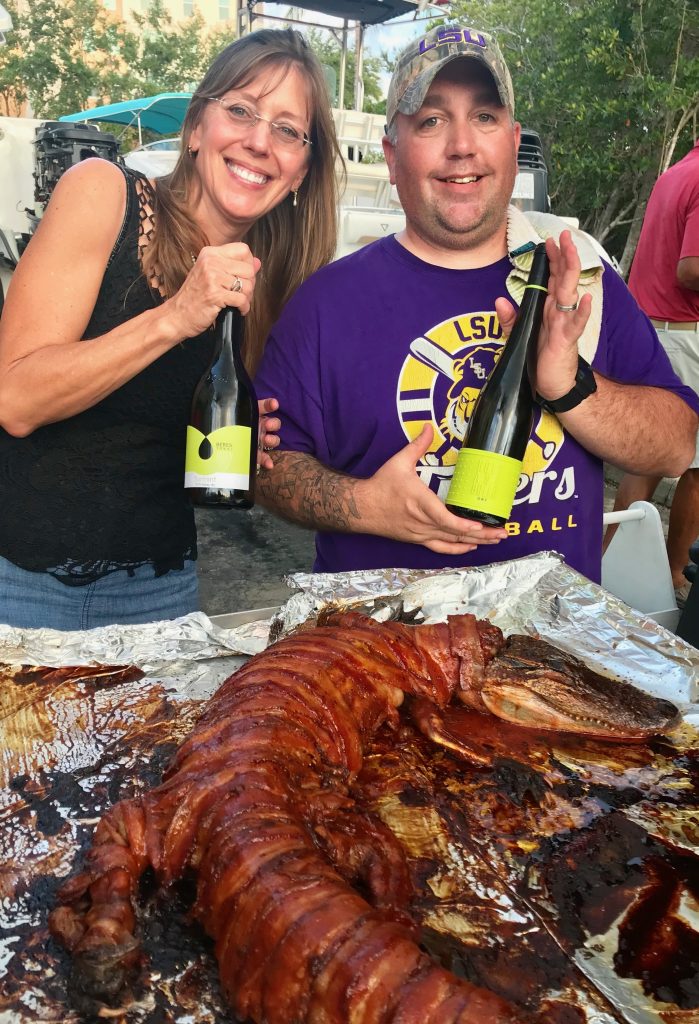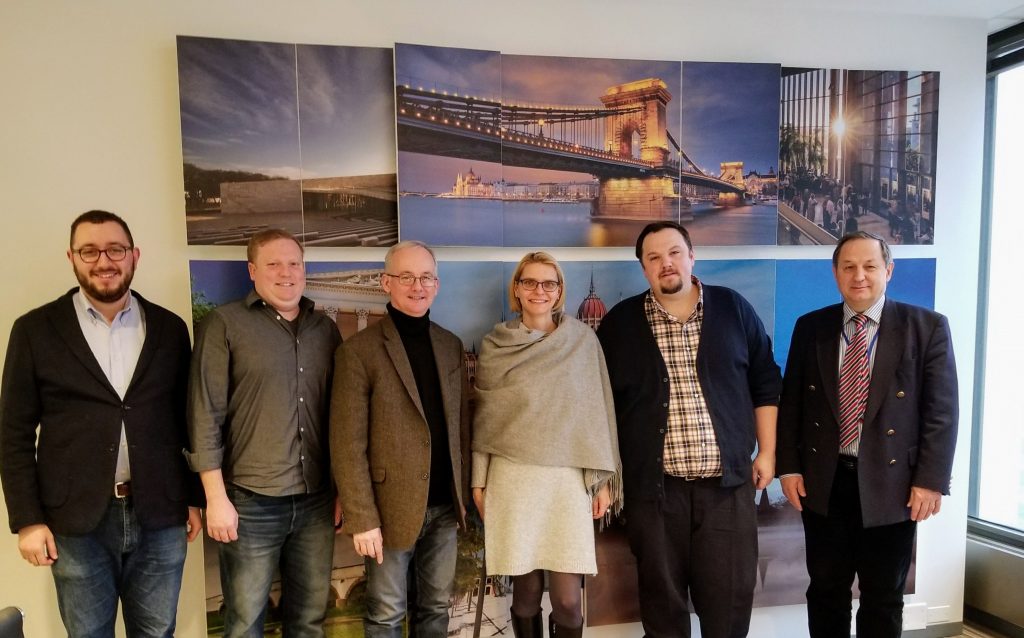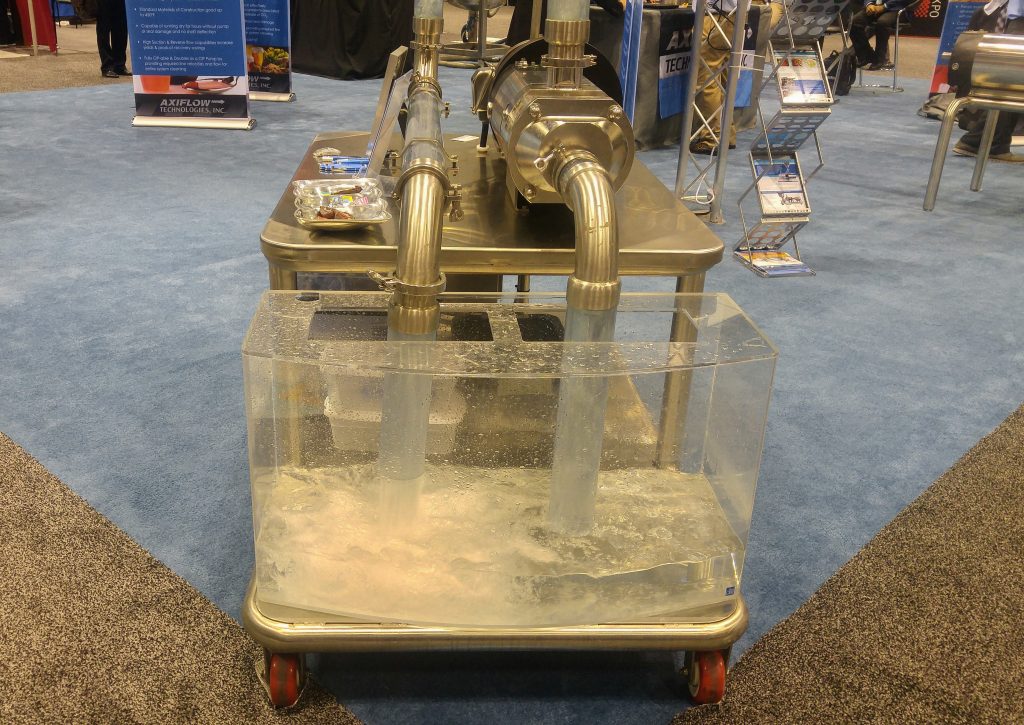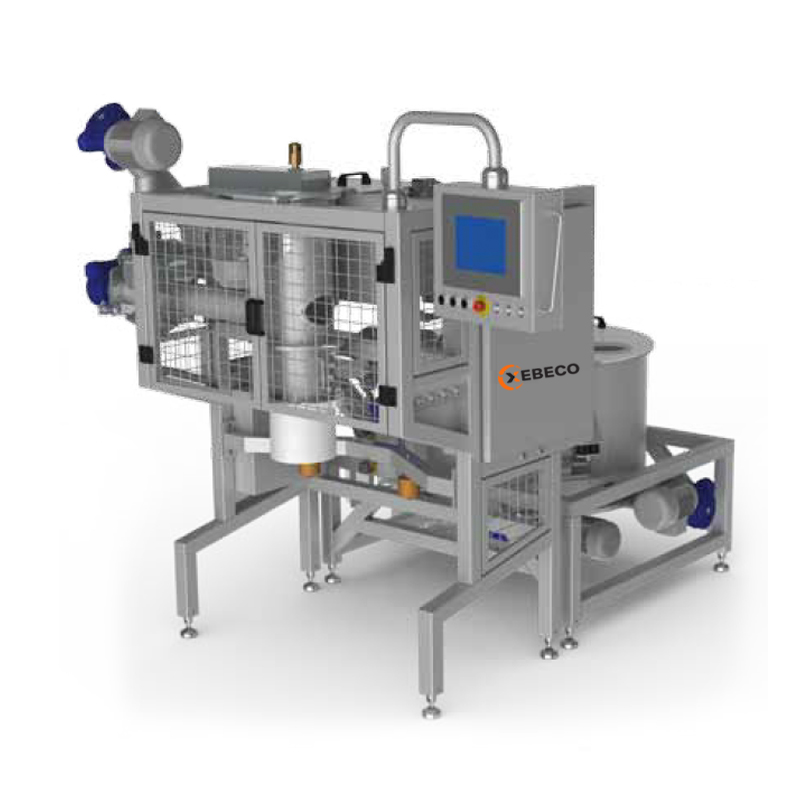Last month we had an extensive conversation with Michael Rosen on biotechnology, innovation clusters, the state of Illinois, and bioscience inernalization. Michael Rosen is a healthcare expert with decades of experience in international business, bioscence, and technology and research parks. Michael is Chairman of the Center for Healthcare Innovation and President of Rosen Biosciences Strategies LLC, a consulting firm focused on the development of science tech parks and clusters.
As a former executive of Pfizer, Bristol-Myers Squibb and Searle/Monsanto, Michael has built research parks in conjunction with universities and serves as an advisor on several biotechnology and research boards. You can find more information on Michael Rosen here.

Tell me about your involvement in Lake County and why it is unique:
Lake County represents the largest cluster of bioscience companies in Illinois. Even though there are great clusters throughout the Midwest (i.e. Minneapolis for medical devices, Indianapolis for pharma, Cleveland, Kalamazoo) Illinois’ Lake County has the most concentration of bioscience companies. Lake County is almost the halfway point between Madison and Milwaukee. There are approximately 122 life science companies in the area, with more than 33,000 life science s. Chicago has 6 medical schools; 4 are in downtown Chicago, one is in the western suburbs, and one is in Lake County. It literally lies five minutes away from companies like Abbott, Abbvie, Horizon Pharmaceuticals, and more.
The primary goal of the “Innovation and Research Park” at Rosalind Franklin is to find out what Rosalind Franklin is doing well and how they can have collaborations within the industry. The goal was to try to create an ecosystem that attracts valued members in the industry to collaborate with Rosalind Franklin and to create start-ups. They have Bio Pathways; whose goal is to do what Matter has done in downtown Chicago in Lake County.
Regarding the new science park – I was able to identify a developer and get the state of Illinois to expand the Enterprise Zone to include the Rosalind Franklin campus, which should help attract jobs and companies. I’ve brought in four major international companies, two German, one Japanese, and one from New Zealand (at the Illinois Science and Technology Park in Skokie). I’m hoping to replicate that for Rosalind Franklin. The advantage of the Rosalind Franklin park is that the university is right there, and there will be collisions between the university and the industry.
Who are the notable companies in Lake County in the biotechnology and life sciences industry?
Takeda, Baxter, Shire, Pfizer, Horizon Pharma, Avexis (just acquired by Novartis), and Fresenius are the big players in the area, among others.
What is Lake County doing to distinguish itself and attract companies as it relates to life sciences and biotech?
The economic development arm of Lake County is called Lake County Partners. The Lake County suburbs are some of the nicest and wealthiest suburbs in Chicago, with proximity to Southern Wisconsin, where real estate is cheaper. Now you can bring in to play an additional airport (Milwaukee) which is cheaper, not to mention that it is a great airport. Lake County is half between Chicago and Milwaukee. Lake County Partners has clearly done a lot for companies that have tried to enter the state. The city of Tianjin in China, port city of Beijing, has an MOU with Waukegan.
Can you explain how innovation clusters help international companies, specifically in life sciences, break into the US market?
Innovation clusters help international companies primarily with cutting edge science. For life sciences that means manufacturing talent, clinical talent, discovery talent, regulatory talent, etc. Lake County has access to traditional venture capital and corporate venture capital. In addition, we have access to angel capital and access to a new form of capital, “family capital” – families invest as angel investors. Proximity to hospitals is crucial. Right next to Rosalind Franklin, there is a Lovell Federal Healthcare Center – the only U.S. combo of a Naval and Veterans Affairs hospital. The veteran’s hospital covers 90,000 veterans in the region. The naval hospital and veteran’s hospital run about 50 clinical trials annually. In an innovation cluster you want:
All of these are key components and you want to have them relatively close. The one issue with Chicago is that everything is much more dissipated. You want to have “co-opetition” which is competition and cooperation. You want competing companies and cooperative environment.
What trends do you see in the biotechnology industry in the U.S., particularly in Lake County and the Chicago area?
Globally; aging of populations, ages 65 and older. This is a phenomenon that has affected the US as baby boomers are reaching and exceeding 65. This effect will increase the cost of healthcare in this country. 80% of what you spend on healthcare in your lifetime happens after age 65. This is not only a US problem. Healthcare today represents 18% of GDP, and we’re going to see it potentially move to 30% of GDP. US is the only country in the world where we have freedom of pricing for drugs.
There are two trends that will make this freedom of pricing difficult to maintain. One, Tremendous cost of new therapies. Gilead came out for a cure for hepatitis C, the cost was between $85,000-$87,000 for a 12-week treatment. Two, Growth of biosimilars. Biosimilars are generic biotech drugs. The FDA has watched the approval of these drugs very carefully; only a handful have been approved in the U.S.
Another trend is that there are still several diseases that need curing. Alzheimer’s is a disease that is having a tremendous impact on our society and is increasing. There is no good, effective therapy for Alzheimer’s. There have been more than 25 drugs that have failed in phase 2 and 3 trials in the last 5 years.
There is no one single approach to cancer. I think what’s going to happen with cancer is what has happened with HIV infection, that the drugs that come out for HIV don’t cure HIV but keep it in check.
Another trend is personalized medicine. The focus of new therapies will be to come up for a specific approach for each patient. Telemedicine is going to increase, particularly with elderly populations.
You are on the advisory board of the American Israeli Chamber of Commerce. How do you see Israeli technology and life sciences companies compete in the U.S.? How do they differentiate themselves?
My impression is that there are more than 1,000 Israeli bioscience companies. 90% of these companies have less than 5 people. They work in the Israeli incubator system. There are 25 government-funded incubators in Israel. Most of the Israeli companies are not involved in drug development. Half of the companies who are not doing drug development are focused on medical or healthcare applications and others are focused on medical devices. The Israeli incubator system enables companies to get to prototyping very quickly (faster than the U.S.) and cheaper than the U.S.
The difference between the U.S. and Israel as it relates to medical devices is that the prototyping process is much faster in Israel. When Israeli companies get to the prototype stage, they’re looking for an exit. They’re usually not looking to create the next Teva. I think the problem with most Israeli companies is that they’re very quick to prototype. They’re ingenious with technology, but they’re not looking to create mega-companies. An additional problem is that most Israelis feel very comfortable in California and New York. To get them to go to other areas is difficult.
We’ve been working with New Wines of Hungary, a consortium of wineries in Hungary’s Tokaj region, for over a year. Recently, one of our partners, Rick Perry, in Florida received samples of several wines and brought them to a local event.
Rick’s feedback below shows the quality of Furmint wines – and it is a fun example of an authentic crawfish in Florida!
“On Saturday, April 21, I was invited to a crawfish boil and I brought five “Furmint” wines from New Wines of Hungary. Numerous business executives, bankers, lawyers, political office holders, and others were there for this casual and fun annual experience. I received a lot of positive feedback. Most people were surprised by the refreshing smoothness of these dry whites that exhibited a light golden color, minerality, some with a tinge of fruit, others a bit dryer; however all have an even keel smoothness that enhanced the spicy foods and vegetables.
People commented on the good balance and ability to stand up to all the foods (and the crawfish and vegetables were quite spicy). Some mentioned a “creaminess” that helped soothe the spiciness. I made wine-pairing suggestions of: seafood, shellfish, oysters, spicy dishes, sushi, Indian, Thai/Vietnamese, Lebanese/Greek and pair very nicely with vegetables (red peppers, carrots, tomatoes and hummus) we tested some today with these vegetables and were once again surprised how well they paired.
The wines brought out more flavor from the vegetables without either one over-powering the other. Not only did we have Crawfish with potatoes, carrots, corn, artichokes and cauliflower; but they grilled two alligators and wrapped them in bacon.
I did try the gator, but I did not think it paired all that well with the wine. The wine did pair well with the smoked sausage that was grilled with the gator. All in all a lot of good feedback and many people asked me where they could get the wines locally. I told them I am working on that and will get back in touch with them.”

RYME+ is a European Union funded program to organize business meetings and exchanges between American companies and companies from France, Spain, and Portugal. As the partner of RYME+ in Chicago, FB International LLC spent the month of January speaking to 25 European companies to gain a better understanding of their plans for the U.S. market.
The companies are planning to visit in June 2018, and FB International LLC is organizing meetings on their behalfs. For more information on the industry sectors and specific companies participating in RYME+, visit the RYME+ page on our website.
We believe that the companies coming to Chicago would be great potential partners for American companies. Even though we have not yet started to contact potential U.S. counterparts, some European companies are making huge strides in the Chicago area. Neosistec, developers of the “NaviLens” technology for the visually impaired, is one such company.
NaviLens is a software platform that has the capability to make signage and other forms of public writing accessible to people with visual impairments. Neosistec has developed a new form of code called DDTags, similar to QR codes, that can be scanned instantly and from up to 12 meters away with a smartphone.
The NaviLens platform can detect multiple DDTags markers while the smartphone is in full motion, and read the content of the tags back to the user. Train stations, airports, offices, municipal buildings – all could adopt the NaviLens technology to improve the accessibility of their spaces.
For more information on the upcoming RYME program, and a first chance to meet with companies like Neosistec and others, contact us by clicking here.
We are pleased to announce that consumers will soon be able to purchase premium wines from the Tokaji region of Hungary in the state of Illinois. Terra Selections Inc. is now the official Illinois distributor of wines from New Wines of Hungary, a consortium of high-quality wineries from the Tokaji region.

From left: Noah Feingold (FB Int.), Austin Yancey (Elite Personal Chefs),
Fabrice Bonvoisin (FB Int.), Consul General Zita Bencsik (Hungarian Consulate),
Erik Hampe (Terra Selections), and Andras Juhasz (Hungarian Consulate).
Since 2016 we have been working with New Wines of Hungary (“NWOH”). Our mandate for New Wines of Hungary is to identify wine distributors in Illinois and eventually Colorado. We conducted an extensive search and networking on behalf of NWOH. Through our networking efforts we met Elite Personal Chefs, a company of executive chefs based in Chicago.
Thanks to the introduction of Elite Personal Chefs and their CEO Austin Yancey, we were introduced to Terra Selections and negotiated an agreement between New Wines of Hungary and Terra Selections. The next step in the relationship would be to start placing dry “Furmint” wines from Hungary in select restaurants across Chicago. So stay tuned for new developments!
Is Chicago an attractive destination for candy and confectionery companies looking to set up operations in the U.S.?
Chicago used to be the candy capital of the world. Lots of companies have been acquired or gone out of business since then. Mars and Wrigley global are based here, the Ferrara Candy Company is here and is now part of Ferraro. Logistically, we’re right in the middle of the States. Sweets n Snacks is here every year.
What recommendations would you make to small and medium sized candy makers from overseas who want to come to the U.S.?
Companies should make sure that their brand name is easy to pronounce, and that the products are easy to pronounce. I recommend that they look at the specialty markets. You’ll need a good distribution partner, then you can make the rounds in terms of figuring out “who’s who” in the industry. This is a close knit industry segment, and it’s not hard to get to know the players. Mars and Hershey are fierce competitors, but there’s a bit more leeway to get into the market than in other industries. You have to be prepared to commit for a while, breaking in to the market doesn’t happen overnight.
What approach should companies pursue to establish themselves in the U.S.? Trade shows? Distributors? Restaurants?
The US market is very difficult and stratified, and getting retail space is difficult. If you have a product that is niche, in terms of premium or price-value relationship, that will help break in to the market. Distribution is key – you need to find a good partner. Your product has to be a good confection – a lot of smaller companies use automation.
Small companies often can’t afford mass marketing campaigns like those TV. Guerilla marketing or hosting events is the best opportunity for companies of this size. You need to create buzz.
Municipal governments in the United States are submitting proposals offering billions of dollars of incentives to bring Amazon’s headquarters to their city, but the E.U. is less enthusiastic about “GAFA” companies. According to EU Observer, finance ministers from France, Germany, Italy, and Spain are preparing to advocate for increased taxes on Google, Amazon, Facebook, and Apple.
The point of dispute between some European Union member countries and GAFA companies is about the area in which those companies pay taxes. Currently, companies like Apple pay taxes based on the location of their subsidiaries in Europe, not based on where they make profits. Companies have been able to pay lower taxes by locating their subsidiaries in lower-tax countries like Ireland. The finance ministers and governments of France, Germany, Italy, and Spain (among others) are petitioning to change the regulations of the E.U. to require companies to pay taxes based on where their profits are generated.
Meanwhile, companies like the France-based Dassault Systems (who recently purchased a systems engineering company) seem to be focusing their strategy on finding ways to provide unique added value to their clients. Across Western Europe, ICT companies are innovating their offering in an effort to stay on the cutting-edge of their field and compete with the U.S. and Asia. I visited the Fortune 500 list of the world’s largest companies and their country of origin and found that few of the largest ICT companies are based in Western Europe. Companies from France, Portugal, the U.K., and other Western European companies may need to think out of the box (whether through acquisitions, unique offerings, new technology or competitive pricing) to stay competitive in the global ICT market.
European companies, particularly manufacturers of IoT equipment, have struggled to compete with the massive players in the U.S. and parts of Asia. Companies like Amazon and Google are pursuing ambitious innovation in the Internet of Things space, while more traditional industry companies like Cisco, Dell, and GE are producing “smart” devices and services adjacent to IoT. In Asia, Hitachi Data Systems (Japan) and Huawei (China) are investing in developing IoT applications and platforms. Huawei has recently been expanding in Spain, with a focus on smartphone sales and eventually, brick and mortar stores in Madrid (South China Morning Post).
Sopra Steria, one of Europe’s largest IT companies, sees several opportunities for European companies in IoT. Patrick Faure, a Digital Practice Manager at SopraSteria writes that the keys for European companies to seize the advantage in the production of Internet of Things products and technologies is to
“Encourage alliances in order to create platforms suited to the demands of a particular niche market, exploit as much as possible the wealth of what is on offer in terms of industry platforms, and, above all, think about the value in use before thinking about the characteristics of an object.”
I identified an exhaustive report conducted by Industriall European Trade Union – a federation with 7 million members that represents over 200 unions. Industriall’s 2016 report on anticipated changes in the ICT market in Europe reinforces what we’ve seen working with companies like M2M from Hungary and ITI Communication in France. That is, companies in the smart grids, medical electronics, and industrial automation industries are growing in number of employees more than companies in “pure electronics”.
The trends in the ICT segments of Western Europe generally follow the trends in the rest of the world, with growth in innovative technology areas such as Smart Cities and Internet of Things devices, industrial automation, high-tech visualization systems, and software development. In contrast, Industriall anticipates a continuing decrease in employment in the consumer electronics and domestic appliances industry, among other long-established industries in Europe. Despite the fact that many segments of the ICT industry are growing in Europe, Western European companies across the ICT sector are finding it difficult to compete post-recession with U.S. and Asia.
Another country in which ICT is a hot industry is Israel – but that’s a topic for the next blog post!
The Digital Manufacturing and Design Innovation Institute has been on our radar for quite some time. And it’s no accident – DMDII (a public-private partnership) is working to answer questions that the manufacturing industry is struggling with.
We visited DMDII at UI Labs for their “Digital Disruption Workshop” event. This event and workshop focused on how changes and innovation in digital manufacturing could disrupt existing processes and assumptions in the manufacturing industry. The event opened with a panel featuring executives from John Deere, BMW, and ITAMCO.
The topics discussed on the panel – 3D printing, virtual reality, digital manufacturing – are topics that I am familiar with. But as someone relative new to the manufacturing industry, I was shocked to see how absolutely disruptive some of the newer trends in manufacturing will be. Take, for example, the disruption that electric vehicles will cause. Suddenly, the automotive industry will move from internal combustion engines (which require hundreds of different parts) to electrical engines, requiring comparatively fewer parts. How will OEMs and suppliers deal with these changes? I do not know, and neither did the panelists – but I was glad to see that these topics were being discussed vigorously by both the panelists and the audience.
After the panel we had a chance to explore the factory floor, visiting companies like Vision Three and Light Guide Systems. The companies we saw are working on technologies related to digital manufacturing. We worked with Autodesk. We saw how augmented reality can speed up the manufacturing line and identify bottlenecks. We learned about the direction that wearable technology is moving. And I had a chance to test a virtual reality system that helps manufacturers train employees.
Having never visited UI Labs or DMDII before, I felt that I learned a lot in our 6-hour visit. The amount of partnerships and genuine collaborative research and work being done through UI Labs impressed me. I would recommend a visit to their website to browse around. At the very least, manufacturers and those adjacent to manufacturing may find some interesting research and news. At best, you may find an opportunity to work with UI Labs in Chicago!
Be sure to follow us on LinkedIn, where we continually share news and opportunities in the fields of international business, Chicago, manufacturing, software, and more.
We are excited to announce the launch of the 2018 RYME+ program, a unique opportunity for companies from the United States to connect and explore collaborations with companies from Europe.
RYME+ is a European Union-funded international business program that supports the global business development of small and medium-sized companies from Spain, France, and Portugal. Through RYME+, 33 companies from these countries will have the opportunity to build business collaborations with companies from the United States.
These 33 European companies are in the following industries:
Those interested in learning more about the companies and requesting a connection to a company, click here. We welcome the opportunity to facilitate communication between you and the 33 RYME+ participants!
A few months ago I wrote about building my experience in international business through working with manufacturers, meeting executives, and attending trade shows. Since the beginning of the summer I’ve attended multiple conferences and shows. Our company attends several trade shows a year on behalf of our clients and to build our connections. Because we work in many different industries, we’ve attended shows pertaining to medical devices, industrial molding, floriculture and agriculture, and more this year.
Last week, I visited , the trade show for food processing and production equipment. The goal of my visit was to learn more about the food processing industry, as well as identify contacts and opportunities for a European client – a manufacturer of distilling equipment.

Arriving at the show Wednesday afternoon, I expected that half or so of the exhibitors would have equipment with applications in beverage production. In fact, many of the companies exhibiting at Process Expo were displaying machines and equipment that facilitate the production and processing of meats and baked goods. Xebeco is one such company that had a large exhibition area. Their industrial equipment includes “Idromix”, which continuously mixes powders and liquid (i.e flour and water) saving time and materials in the first step of the baking process. Xebeco’s exhibit area had various types of mixers, hoppers, and hand tools. To my untrained eye, their equipment looked like larger versions of kitchen equipment that I’ve used to bake at home!

While the show featured several processing lines and equipment manufacturers, there were also some products that I would categorize as “supplementary” to the food production process – but still interesting and worth discussing. One such company, JAX, produces food-grade lubricants (such as greases, oils, and hydraulic fluids). Their products are used to lubricate food storage, processing, and manufacturing equipment. This is a specific product area directly adjacent to the actual food processing machines, and one that I hadn’t considered. Yet, according to multiple market research firms, the global lubricants industry is growing between 2-4% annually and produces close to 40 million tons a year.

Based on what I saw and the professionals I met, I would highly recommend this show to food producers, buyers of food processing equipment, farmers, retailers, bakers, consultants looking for opportunities for their clients, distributors interested in expanding their portfolios, and any others interested in learning more about food processing. While there were less beverage and distilling-related companies than I expected, I still believe that Process Expo is a worthwhile show for beer brewers, spirts and wine producers, and non-alcoholic beverage producers.
Did you have the same experience at this show? Let us know in the comments!
ExporTech is a summer program that helps companies create a custom export plan. The program is offered nationally by “National Institute of Standards and Technology’s Manufacturing Extension Partnership program and the U.S. Export Assistance Centers of the U.S. Department of Commerce”.
Only 6-8 companies can enter, so if you see a need for your company make sure to apply today using the link below!
Learn more about how we can make your
market development a success, in the U.S. or in another country.